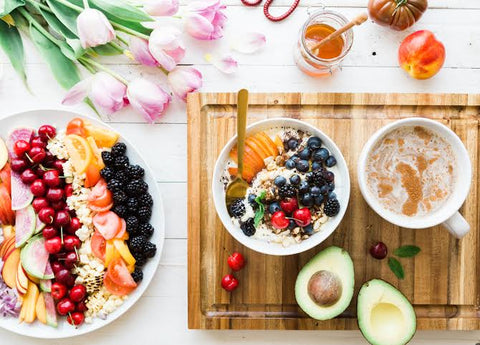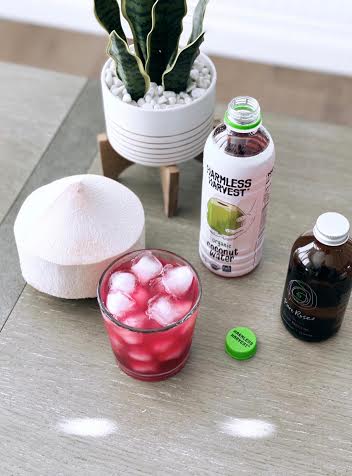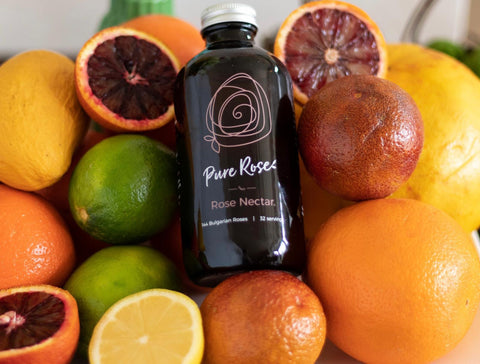The culprit behind skin and body aging, Alzheimer’s, dementia, heart disease, and even cancer have been found to be none other than, free radicals. Discovered in the 1950s by Denham Harman, free radicals are now widely considered by science to be the cause behind cell degeneration, aging and a range of diseases. These free radicals are unstable atoms in the body, which, to become more stable, steal electrons from other atoms. By doing so, they cause our cells and cell membranes, a process known as “oxidation” or “oxidative stress”.
When free radicals oxidize certain cells, those cells lose their ability to function properly. Numerous studies have indicated that an excess of free radicals causes or accelerates cellular degeneration and leads to disease and aging. With age, the body loses its ability to fight free radicals, leading to more free radicals, more oxidative stress and thus, more body aging. Hence why aging accelerates over time.
Free radicals occur naturally in the body as part of normal biological processes. Our immune system uses them to eliminate pathogens and other unwanted stimuli. A certain dose of free radicals is necessary for our bodies to function properly. It is the abundance of free radicals that becomes an issue. There are certain environmental and lifestyle factors accelerate their production and lead to oxidative stress and extrinsic aging. Those include:
- Pesticides
- Pollution
- UV rays
- Smoking
- Alcohol
- Fried foods
- Chronic stress
- Excessive exercise
So How Do You Fight Free Radicals?
- The obvious answer is to limit as much as possible exposure to the above-mentioned environmental and lifestyle factors. Avoid pesticides (i.e. non-organic foods), smoking, excessive alcohol, fried foods.
- While moderate exercise can be highly beneficial, excessive physical activity has the opposite effect. It can create too much inflammation and oxidative stress which prematurely ages the body. That explains why professional athletes have among the shortest lifespans. Moderation is key.
- The same applies to stress - low to manageable levels of stress reduces levels of oxidative damage, while chronic psychological stress and abundance of cortisol accelerate oxidative stress and biological aging. (For more on how to manage stress read here).
- Natural antioxidants. Luckily, nature has given us substances that lessen or prevent the effects of free radicals and oxidative stress, called for obvious reasons, Anti-oxidants. Antioxidants guard us against free radicals by donating an electron to them before they oxidize other cell components. Once that electron pairs with a free radical, the free radical is stabilized and becomes non-toxic to cells.
Among natural antioxidants, particularly interesting are plant-derived substances called Polyphenols (divided into two groups - flavonoids and phenolic acids). Flavonoids -- the pigments that are ubiquitous in the plant kingdom (in flowers, fruits, and seeds) are exceptionally beneficial with their anti-inflammatory, anti-carcinogenic, and anti-oxidative effects. But here is the issue. With eroding soil quality over the past century, the flavonoid content in fruits and veggies has decreased drastically. Therefore, normal fruit and veggie diet are just not enough, and supplements containing antioxidants have been proven ineffective.
How Do I Get More Flavonoids in My Diet?
The short answer is natural food sources, and particularly herbs and plants rich in flavonoids. According to a scientific study conducted in 2010, some of the most flavonoid-rich foods topping the charts were found to be these super herbs:
- Bulgarian Rose (Rosa Damascena)
- Ginkgo Biloba
- Solidago virgaurea
- Camellia sinensis
Top Health Benefits of Flavonoids
Prevent Skin Aging
Skin, your largest organ, serves as a shield to protect your body from outside stressors and as such, it is particularly vulnerable to free radicals. Pollution, UV rays and tobacco smoke attack the skin from the outside, while stress and poor diet attack it from the inside. Regardless of your topical skincare routine, if you care to preserve your skin from aging, nourishing your skin from within with a flavonoid-rich diet is a must. Otherwise, free radicals compromise skin cell membranes, making your skin even more susceptible to the outside environment.
Prevent Mental Decline
Since free radicals cause mental decline, antioxidant- and flavonoid-rich diet guards your brain against long-term ailments like Alzheimer’s, Parkinson’s and dementia. These conditions start developing years, if not decades before any symptoms occur. It is never too early to guard against free-radical damage to your most important organ with a flavonoid-rich diet.
Prevent Heart Disease
Flavonoids contained in super herbs like the Bulgarian Rose have demonstrated therapeutic effects on heart health and were found to benefit the health of the cardiovascular system.
Give You an Immunity Boost
Your immune system plays a critical role in protecting your body against infectious diseases and cancer. A compromised immune system can cause a litany of health issues including infections, fatigue, headaches, fever, poor eyesight, bowel issues, and many others.
Flavonoids have been investigated for their effects on the immune system. Flavonoids are able to modulate the immune response and have anti-proliferative effects on cancer cells, though the exact molecular mechanisms involved in these changes are not yet well understood.
Extend Your Longevity
Free radicals attack not only your skin cells but cells throughout your body. Consuming a diet rich in flavonoids, therefore, doesn’t go skin deep. It helps guard against the attack of free radicals in the body and boosts your cells’ ability to regenerate. Whether you are a professional athlete, or you deal with excessive stress, or simply care about staying younger, healthier, longer, it is warranted to increase your flavonoid intake beyond the occasional smoothie, fruit or salad. The latest research conducted at the University of California, Irvine is showing that Rosa Damascena, loaded with flavonoids, is also one of the most potent anti-aging substances in nature.
Flavonoids and the Bulgarian Rose
You may think of roses as beautiful and romantic flowers. Rosa Damascena, a.k.a. the Bulgarian Rose is not just eye-pleasing, it is a super herb loaded with vitamins, minerals, tannins, and fatty acids -- and you guessed it, flavonoids. Certainly, all forms of life are unique. However, even with the millions of plant species that have been identified in nature, the Bulgarian rose has reigned supreme over all others for providing a variety of health benefits for ages. Numerous studies conducted with Rosa Damascena point exactly to the benefits you would expect from flavonoids. The Bulgarian rose has shown to be a powerful anti-inflammatory that aids with Alzheimer’s, dementia, depression, cardiovascular health, skin and body anti-aging.
How to Consume the Bulgarian Rose
Functional foods derived from super herbs like the Bulgarian rose clearly become essential in achieving optimal health. Rose Nectar, a proprietary product developed By Pure Rose, is the highest quality drinkable Bulgarian Rose product, loaded with the flavonoids and therapeutic compounds you need in your everyday diet. It’s super easy to use - just add a few servings to any drink of your choice, smoothie or dessert and enjoy its subtle floral taste and aroma while guarding your body against the villain behind aging and disease called free radicals.
References
- J Agric Food Chem. 2010 Oct 27;58(20):10812-6. doi: 10.1021/jf102175x. Epub 2010 Oct 4.
- J Agric Food Chem. 2010 Jan 27;58(2):882-6. doi: 10.1021/jf903515f.
- Iran J Basic Med Sci. 2011 Jul;14(4):295-307.
- J Nat Med. 2013 Jan;67(1):152-8. doi: 10.1007/s11418-012-0666-7. Epub 2012 Apr 8.
- Evid Based Complement Alternat Med. 2011;2011:131042. doi: 10.1093/ecam/nep149. Epub 2011 Aug 21.
- J Agric Food Chem. 2010 Jan 27;58(2):882-6. doi: 10.1021/jf903515f.
- Iran J Pharm Res. 2010 Spring;9(2):163-8.
- BMC Complement Altern Med. 2010 Dec 16;10:77. doi: 10.1186/1472-6882-10-77.





